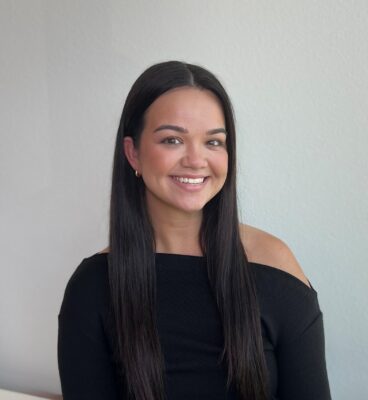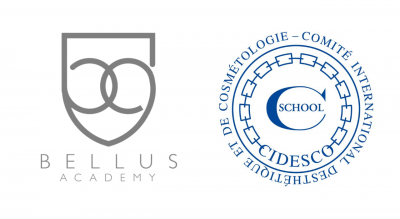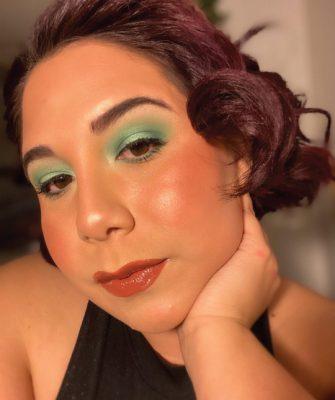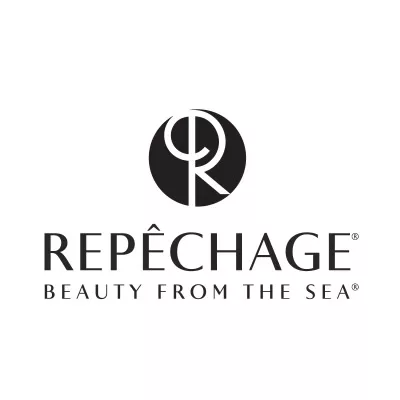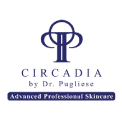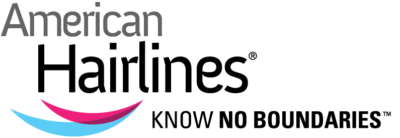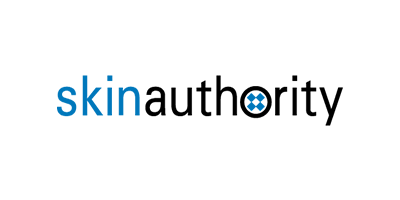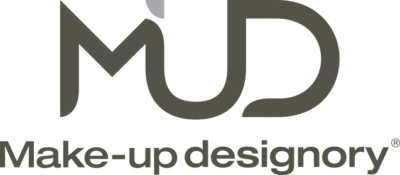Welcome to our FAQ page! We we aim to provide you with all the answers you need to make an informed decision about your future in the beauty industry. At Bellus Academy, we understand that choosing the right program at a beauty school can be an intimidating task. The beauty industry offers a diverse range of career paths and specializations to choose from.
To help you navigate through the options available, we have compiled a list of frequently asked questions. We will highlight the unique features and differences between the programs we offer.
Whether you aspire to become a skilled cosmetologist, a talented esthetician, an in-demand barber, we are here to guide you towards your professional dreams. Explore our Q&A section below and embark on an exciting journey into the world of beauty with Bellus Academy!
Admissions and Financial Aid
Q: What are the admission requirements for Bellus Academy?
A: Admission requirements can vary among beauty schools, but common requirements may include a high school diploma or equivalent, a minimum age requirement (often 17 or 18 years old), and sometimes an admissions interview or placement test. Some schools may also require a basic understanding of English.
Specifically for Bellus Academy in the state of California you must be at least 18 years of age. In Kansas you must be 17 years old to apply. You also need your High School diploma or GED. We accept foreign diplomas pending translation and certification.
Q: Can I get financial aid for beauty school?
A: Financial aid options may be available to you depending on the specific beauty school program of choice and your eligibility status. Our friendly and knowledgeable admissions and financial aid guides will help you explore options such as scholarships, grants, and federal student loans. FA is available through FAFSA.
Q: Can I transfer credits from one beauty school to another?
A: Transferring credits between beauty schools may be possible in some cases, but it depends on the policies of the schools involved. Here at Bellus Academy, we work with you to plan what your future may look like if you are planning on transferring. Call here to speak to an advisor: 888-990-7094
Accreditation and Licensing
Q: Are beauty school programs accredited?
A: Yes, many beauty schools are accredited by state licensing boards or national accrediting agencies. Accreditation ensures that the school meets certain educational standards and that the programs offered are of high quality. It’s important to choose a beauty school that is accredited to ensure that your education is recognized and respected in the industry. Bellus Academy is accredited by the National Accrediting Commission of Career Arts & Sciences
Q: Will I receive a license after completing a beauty school program?
A: In many jurisdictions, completing a beauty school program is a prerequisite to obtaining a professional license in barbering, cosmetology, esthetics, or nail technology. After completing the required training hours at Bellus Academy, you can then take the exam to receive your state license. For the makeup artistry program in California you will receive a certificate.
Beauty School Programs
Q: What programs are typically offered at beauty schools, and what does Bellus Academy offer?
A: Beauty schools typically offer programs in cosmetology, esthetics, nail technology, makeup artistry, and barbering.
Cosmetology programs cover a broad range of beauty services, while esthetics focuses more on skincare and spa treatments. Nail technology programs focus on nail care and design, and makeup artistry programs teach various makeup techniques. Barbering programs specifically train individuals in men’s grooming and hairstyling. Here at Bellus Academy, we are proud to say we offer them all!
We also offer hybrid programs, where some classes have a portion to be completed online as well as hands-on training in class.
Q: How long does it take to complete a beauty school program?
A: The duration of beauty school programs can vary depending on the specific program and the school you chose to go to.
Cosmetology programs often take around 7 to 15 months to complete, while esthetics can take between 5 – 10 months. Nail technology programs can range from a few weeks to several months. At our Kansas campus, the nail tech program is 10 weeks – 6 months depending on day or night program. At our California campuses, it can take approximately 5-6 months.
Makeup artistry programs may vary in length depending on the depth of training provided. At Bellus Academy, the day program is 4 months in California. KS offers a combined shorter makeup artistry course with their cosmetology and esthetics programs.
Q: What is the difference between a cosmetologist and an esthetician?
A cosmetologist and an esthetician are both professionals in the beauty industry, but they have distinct focuses and areas of expertise. Here’s a breakdown of the differences between the two:
Cosmetologist:
A cosmetologist is a versatile beauty professional trained in various aspects of hair, skin, and nail care. They offer a wide range of services, including haircuts, hairstyling, hair coloring, chemical treatments, skincare, makeup application, and nail services. Cosmetologists often work in salons or spas, and they have a comprehensive understanding of different beauty treatments and techniques. They may also provide advice on beauty products and help clients achieve their desired overall appearance.
Esthetician:
On the other hand, an esthetician specializes in skincare treatments and focuses primarily on improving and maintaining the health and appearance of the skin. Estheticians are trained in various facial treatments, such as cleansing, exfoliation, extractions, facial massage, masks, and moisturizing. They may also provide services like lip or brow waxing, and eyebrow shaping. Estheticians often work in spas, skincare clinics, or dermatology offices, helping clients address specific skin concerns and achieve optimal skin health.
While cosmetologists have a broader scope of training that includes hair, nails, and skincare, estheticians specifically specialize in skincare treatments and techniques. Depending on your interests and career goals, you can choose to pursue either path and embark on an exciting new journey in the beauty industry!
Beauty School VS. College
Q: Why would someone choose beauty school or a trade school over a traditional four-year college?
A: There are several reasons why individuals may opt for beauty school or a trade school instead of pursuing a traditional four-year college education. Firstly, these specialized schools, such as Bellus Academy, offer focused and hands-on training in specific industries often not offered at four-year colleges, allowing students to develop practical skills and expertise quickly. Additionally, the shorter duration of programs in beauty schools or trade schools means students can enter the workforce sooner, potentially starting their careers earlier and saving both time and money compared to a longer college education.
Q: How does the cost of beauty school or trade school compare to a four-year college?
A: The cost of attending beauty school or trade school is often significantly lower compared to a traditional four-year college education. Beauty school or trade school programs tend to have shorter durations, meaning lower tuition fees and reduced overall expenses. Additionally, students can save money on room and board costs since they typically commute to beauty schools or trade schools rather than living on campus. This affordability makes beauty school or trade school a more accessible option for those looking to pursue a career in a specific trade or industry.
Foundation Programs vs. Advanced Programs
Q: What is the difference between a “foundation” program and an “advanced” program?
A: In the context of beauty programs, the terms “foundation” and “advanced” typically refer to different levels of training and skill development.
These programs cover the core techniques, theory, and practical training required to develop a strong foundation in their chosen field. Advanced programs, on the other hand, are designed for individuals who have completed a foundation program or have prior experience in the beauty industry. These programs offer specialized training, advanced techniques, and in-depth knowledge to expand students’ expertise and career opportunities.
Foundation programs are designed for individuals who are new to the beauty industry or have limited experience in the field. They meet the minimum hours required by the state to apply for your license. Advance programs contains more education and training and covers more for those that want superior skills.
Foundation programs often cover essential theory, practical skills, and hands-on training required to perform basic beauty services. They establish a strong educational base and focus on building a solid foundation in the specific area of study, whether it be cosmetology, esthetics, nail technology, or makeup artistry.
Students in foundation programs learn core concepts, safety protocols, sanitation practices, and basic procedures related to their chosen field. They typically acquire foundational skills such as hair cutting and styling techniques, basic skincare treatments, nail care, or makeup application fundamentals.
These programs are comprehensive enough to provide a well-rounded understanding of the basics while preparing students for entry-level positions in the beauty industry or further advanced training.
Advanced beauty programs are designed for individuals who have either completed a foundation program or are looking to acquire a certain level of experience in the field. These programs build upon the foundational knowledge and skills and delve deeper into specialized areas within the beauty industry. Advanced programs focus on refining techniques, expanding knowledge, and developing expertise in specific areas or advanced services.
Advanced beauty programs offer in-depth training and may cover advanced haircutting and coloring techniques, specialized skincare treatments like microdermabrasion or chemical peels, advanced nail artistry, or specialized makeup techniques such as bridal or special effects makeup.
These programs may also explore topics like client consultation, business management, marketing strategies, and professional development.
Foundation programs provide essential knowledge and skills to start a career in the beauty industry. Advanced programs offer specialized training and expertise to enhance skills and explore more advanced techniques and services. The choice between foundation and advanced programs depends on your experience level, career goals, and desired level of specialization.
Q: What are the benefits of completing an advanced program?
A: Advanced programs offer beauty professionals the chance to enhance their skills, stay current with industry trends, and specialize in specific areas of interest. These programs provide a deeper understanding of innovative techniques, product knowledge, client management, and business strategies. By completing an advanced program, you can broaden your career options, gain a competitive edge in the industry, and potentially increase your earning potential.
Specialized Certifications
Q: What specialty certifications does Bellus Academy include in their advanced programs?
A: Depending on your program selection, Bellus Academy offers specialty certifications in high-demand areas such as hair extensions, eyelash extensions, Dermalogica skincare, and non-surgical men’s hair replacement systems. These certifications are designed to enhance your resume and give you a competitive edge in the beauty and barbering industry.
Advanced Program Certifications by Program:
Advanced Cosmetology & Barbering Cosmetology
Hair Extensions Certification – Certified in K-Tips, I-Tips, Tape-Ins, and Wefts.
Eyelash Extensions Certification – Certified in both Volume and Classic lash techniques.
Advanced Esthetics
Eyelash Extensions Certification – Certified in both Volume and Classic lash techniques.
Advanced Barbering & Barbering Cosmetology
Dermalogica Skincare Certification – Hands-on training with Dermalogica’s professional product line and protocols.
Non-Surgical Men’s Hair Replacement System Certification – Training in hair system application, blending, and maintenance techniques.
Hybrid Programs
Q: What is the difference between in-person courses and hybrid programs?
A: In-person courses involve attending classes physically at our beauty school campus. Students benefit from direct, hands-on instruction and interaction with instructors and peers. In-person courses provide an immersive learning experience and the opportunity to practice techniques in a real salon or spa setting. On the other hand, hybrid programs combine in-person and online learning. Students can complete theoretical coursework and certain assignments online, while practical training and hands-on experience are still conducted in-person. Hybrid programs offer flexibility, allowing you to balance your studies with other commitments while still receiving valuable in-person instruction.
Q: What are the advantages of choosing a hybrid program?
A: Hybrid programs provide a flexible learning option that accommodates students’ busy schedules. They offer the convenience of online learning for theoretical aspects, while maintaining the crucial hands-on training component through in-person sessions. Hybrid programs can be particularly beneficial for students who may have work or family commitments that make attending traditional in-person classes challenging. This format allows students to personalize their learning experience while still receiving essential practical training under the guidance of our experienced educators.
A Career in Beauty and Wellness
Q: What career opportunities are available after graduating from Bellus Academy?
A: Attending a beauty school or trade school opens up diverse and rewarding career opportunities. In the beauty industry, graduates can pursue careers as hairstylists, makeup artists, estheticians, nail technicians, or salon owners. These industries offer stable employment prospects, opportunities for self-employment, and the potential for career growth.
Once you graduate from a program at Bellus Academy, you can pursue a variety of career paths in the beauty industry. This may include working as hairstylists, barbers, makeup artists, estheticians, nail technicians, salon managers, beauty consultants. You can even start your own business, such as opening your very own salon or spa. If you are still on the fence about pursuing a career in the beauty industry, you can download your ultimate guide to kickstarting a career in the beauty industry here.
Q: Are there opportunities for entrepreneurship in the beauty industry?
A: Yes. Many graduates from Bellus Academy go on to start their own businesses, such as opening their own salons or spa. With the right skills, business knowledge, and creativity, graduates can build successful ventures. Enjoy the benefits of being your own boss. Entrepreneurship in these industries allows for greater flexibility, creative expression, and potential financial rewards.
Q: Can attending beauty school or trade school lead to a successful and fulfilling career?
A: Absolutely! Attending beauty school or trade school can lead to fulfilling and successful careers. These schools equip students with practical skills and industry-specific knowledge, preparing them to enter the workforce with confidence. The demand for skilled professionals in the beauty industry and skilled trades remains high. This provides numerous opportunities for career growth and advancement. By pursuing your passion and honing your skills in these specialized fields, you can find a rewarding career that offers both personal satisfaction and financial stability. Bellus Academy offers real-world training that sets you up for success in the beauty industry.
Making an Informed Decision About Beauty School
Remember, choosing between a beauty school, trade school, or a traditional four-year college depends on a few factors. Think about your individual interests, career goals, and personal circumstances when deciding about attending beauty school.
It’s essential to make an informed decision that aligns with your long-term career aspirations.
We hope these frequently asked questions help you clarify a few things! For example, the differences between foundation and advanced programs as well as the distinctions between in-person courses and hybrid programs. If you have any further questions, please feel free contact us. You can reach our knowledgeable admissions team for more information by calling 888-990-7094 or texting 619-332-0795.
